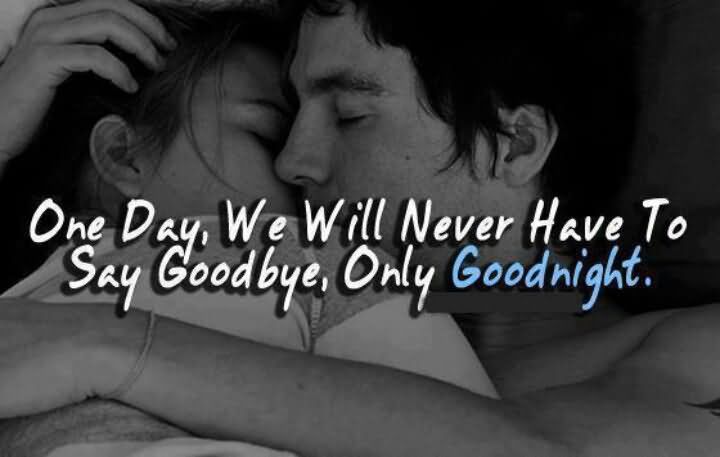Are you doomed to fail, or is there hope on the horizon?

| Toxic relationships – the tragic, stressful relationships where it seems you can NEVER get your needs met and you’re constantly struggling for support, attention, even love. No matter what you do or say it seems like you can never find what you need. Are you constantly looking for hope and reassurance that everything is going to be okay? Do the bad days seem to outnumber the good? Do you constantly feel like you’re giving more than you’re receiving? You may be in a toxic relationship and not even know it. Maybe you have an inkling, an idea that things should be better, but you have no idea how to fix them. Or maybe your relationship started off good but took an unexpected turn. Now that your relationship has turned toxic, what do you do? Can it be saved? First, please know that being in a relationship with someone who continually waffles between wanting you and not is monstrously difficult. Whenever you’re dating or married to someone who gives and takes love away continuously, you’re in trouble. Not to be too forward, but it’s part of your own making, and partly because of the other person’s behavior. We’re not talking about normal behavior when your partner pulls away from you for a while but snaps back with the same level of love and devotion as before. This is a natural behavior cycle for many people, but specifically more common in men. What we’re referring to is a relationship where you’ve been together for a while, yet the other person is emotionally unavailable — constantly. A toxic relationship is one that makes you question your own judgment. A person, who says all the right things and then acts like Dr. Jekyll and Mr. Hyde and disappears into thin air, maybe a commitment-phobic individual, and that’s not usually a good sign. BUT it’s not true for all people or in all cases. What is wrong with your partner? Why are they acting this way? Can your relationship be saved? Well, depending on the situation and the person, maybe or maybe not. There have been many cases where people who were in these seemingly toxic relationships found a way to work it out and get married or stay married. The toxic part was most often related to fear of being hurt or fear of repeating the same patterns from the past. But what causes a toxic relationship? The toxic person has something that causes them to develop this “defense” mechanism where they sabotage their relationships subconsciously to avoid being hurt. Often, toxic people are in great pain. It depends on your partner and their willingness to examine their own issues if the relationship will succeed or not. Sometimes issues can be worked through and couples survive just fine. Other times, the relationship is a goner right from the start. But the person with the “defense” mechanism has to want to change, and it’s often easier to stay hidden behind a wall of protection than it is to risk being vulnerable and potentially getting hurt. And it’s different for everyone; there isn’t one single answer that fits for all people in potentially toxic relationships. Nothing is absolute in a toxic relationship. Since every person and every situation is different, without knowing the specific details about a situation, it’s hard to address all the different issues in one simple article. There is not a general “one size fits all” solution to solving a toxic relationship. It’s in the nuances that we can discover small behavioral changes that can swing a relationship in the right direction, or tip it the wrong way and give you the answers you truly desire, which is– is there any hope? Can it last? The rule of thumb is that until you’ve established equality in a relationship, don’t give more than you’re receiving. If you fall in love with a person and they change, something has happened. Your partner could’ve developed a sudden case of cold feet, or maybe they’ve met someone else, or possibly had a chance meeting with an ex who’s making your partner question their relationship, or maybe some other crucial person in their life is having relationship stress. If these things are happening in the background, your partner may be preoccupied and feel like you’re asking more from them than they can give. Just remember — something happens to cause a person to abruptly change. The hard part for many people is that they choose to stay in the relationship, knowing it’s difficult, or hoping that the relationship is toxic and will change. And here’s what people may not want to hear: The non-toxic person plays a pivotal role. Staying in a difficult situation, knowing it’s bad, but hoping for change and accepting the toxic person’s behavior without consequences teaches the toxic person that they can get away with it. The vicious cycle begins. Many people put this under the umbrella of unconditional love. That’s a mistake if this behavior lasts too long. To truly address this issue, a person has to be more in love with themselves than they are with the idea of being in love. This is not implying you should be selfish or self-absorbed, but you have to love yourself first before you can love another person. Many people invest time in finding a relationship, any relationship because they are tired of being alone, or afraid that they will never find love. When they do this they lose sight of their bigger goal, which is to find a good relationship. When a person thinks being in a relationship with a toxic partner still feels better than no partner at all, the trouble begins. Often people who enter into toxic relationships–and stay — are working on discovering something about themselves. They are also writing their own stories about what kind of love they deserve. What it ultimately comes down to is self-esteem. A person with high self-esteem looks at a partner who disappears or appears toxic and they ask themselves if this relationship is good for them. Is their partner giving enough to the relationship? Can this relationship fix itself or is this as good as it gets? If the answers show that their partner’s not good enough, a person with high self-esteem exits the relationship with little fear and regret. The poorer a person’s self-esteem, the harder it is to make this decision. Emotions like fear, regret, terror, isolation, and abandonment come along and begin to take over a person’s thinking. The very act of thinking or feeling these emotions without getting a fair and reasonable reality check can cause a person with low self-esteem to hold on to the toxic relationship even tighter: the cycle continues. The only way out of this type of behavioral pattern is to look at the root cause– and it’s not about the toxic partner, but the person who’s in this type of relationship. It’s a hard lesson that all lovers have to learn– when to fairly say enough is enough. Most of us learn this hard lesson when we love someone and see the potential in them and continue to love and forgive their shortcomings…only to find out too late that they checked out long ago. This is a recipe for disaster because change NEVER happens without a reason. Often people who call our coaching-phone line are amazed and shocked that their partner disappeared after months of working on the relationship. What has often happened in this situation is that the toxic person just decided that enough was enough and made the choice that the resisting person refused to see. If you find yourself in what you think maybe a toxic relationship, you need to talk to a third-party person, who is not involved, and get a fair assessment of the situation. Often we’re way to close to understand the big picture and a third person, like a coach, can offer this perspective. Once that’s handled, you need to examine your partner’s behavior. How are you contributing, supporting or enabling the toxic person to get away with being less than 100%? Finally, some work needs to be done to look at your feelings about yourself. Many people remain stuck with thoughts of “this is all I deserve” or “I believe it can be better and I’m waiting for that to happen.”If you find you’re going through these things right now or feel you might be stuck in a toxic relationship, the Mars Venus Coaching team can help. A coach can help you: Learn the warning signs of a toxic relationship. Establish the differences between when your partner pulls away naturally and when they are really emotionally unavailable. Figure out where to go if either you or your partner is uncertain about the relationship. Decide if you can get what you want from this relationship-or if it is time to move on if you are having trouble in a relationship or need some tips on how to find your soul mate, the Ask Mars Venus Coaches can assist you. They are sympathetic and offer unbiased advice to help you through the rough times. If you gain any wisdom from this article, we hope that learn that you have choices, and you can change your life. No one is destined to be unhappy in love. Often all that is needed is a bit of insight into your dating and relationship strategy to get you pointed in the right direction. We encourage you to call a coach. |
Do you have any questions or concerns about your relationship? Do you need help understanding how this information can change your life? Talk to one of our expert trained coaches today and get the answers and the support you are looking for.
